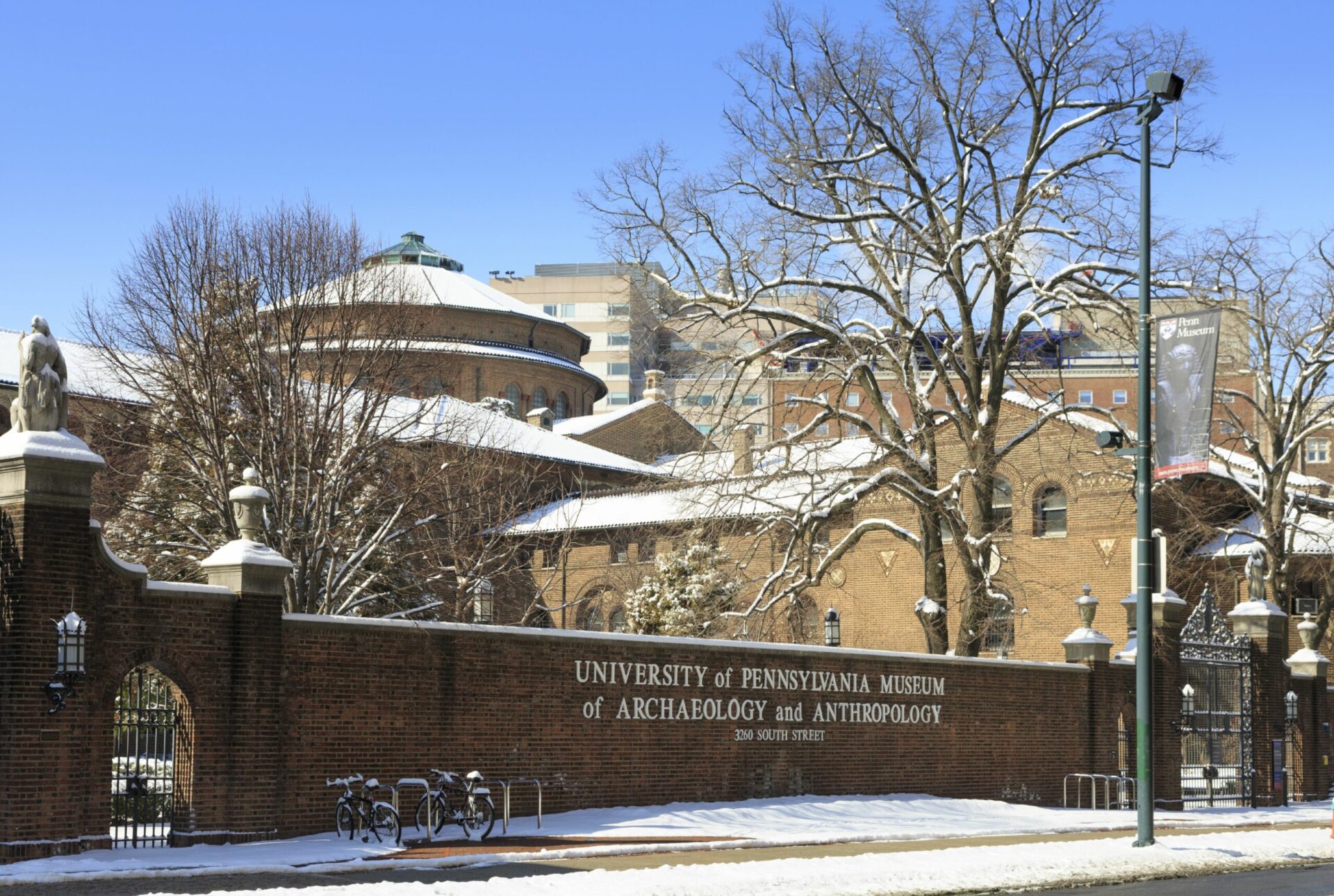
October 3, 2023
Amid A Racial Reckoning On Museums, Penn Museum Will No Longer Display Human Remains
The Penn Museum in Philadelphia announced Oct. 2 that it will no longer display visible human remains such as bones, teeth, and hair. As NPR reports, the change comes as museums face criticism over how they procured human remains from Black and indigenous peoples to put them on public display.
In April 2021, the museum formally apologized for including the skulls of Black people that the museum acquired in an unethical manner. Christopher Woods, the museum’s director, said in a statement at the time:
“The Penn Museum and the University of Pennsylvania apologize for the unethical possession of human remains in the Morton Collection. It is time for these individuals to be returned to their ancestral communities, wherever possible, as a step toward atonement and repair for the racist and colonial practices that were integral to the formation of these collections.”
Regarding the more recent move, Woods told NPR, “It’s about prioritizing human dignity and the wishes of descent communities. We want to make sure that these are our front and center of how the museum operates.”
Woods said that the school would continue using human remains in its advanced classes, but the museum would not be putting those remains on public view.
Penn’s policy is so far the most radical of any museum in the world. Others, such as the British Museum, have created ethical policies regarding human remains but still allow them to be displayed.
Another Philadelphia museum, the Mütter Museum at the College of Physicians, is famous for its extensive collection of diseased human remains, but announced an Oct. 17 event in which it will hold a public discussion about the ethics and consent regarding those displays.
“This two-year-long project will be the most robust community collaboration project ever undertaken by the museum,” Kate Quinn, executive director at the Mütter, told NPR. “Over the past few months, many in the Mütter community have passionately expressed their thoughts about the Museum’s future, and we’ve been listening.”
Post-George Floyd, museums faced a reckoning in how they displayed exhibits, and it was not limited to natural museums such as the Mütter. A planned Philip Guston retrospective, which was to be simultaneously displayed at several fine arts museums in 2020 including the Museum of Fine Arts in Houston, was postponed until 2025 because of the multiple Black Lives Matter protests that summer. Some of Guston’s paintings portrayed the KKK, albeit unfavorably.
A collective of artists denounced those museums’ lack of preparation amid the cultural and moral moment that faced them, writing in an open letter that there was a “longstanding failure to have educated, integrated, and prepared themselves to meet the challenge of the renewed pressure for racial justice that has developed over the past five years.”
The museums responded by moving the retrospective up to 2022 and adding a note from a trauma specialist regarding some of the works on display. In a 2021 interview with The Guardian, Guston’s daughter, Musa Mayer, discussed her feelings about how postponing the retrospective was essentially a misreading of her father’s work.
“The history of racism in the United States is one of periods when it is submerged in the popular consciousness, followed by periods of great unrest, like the present one, when it is manifest, and no one can deny its existence,” Mayer said to the newspaper. “My father made those works at a time when the Ku Klux Klan were no longer as menacing as they had been in his youth, but racism was still, of course, a presence in the consciousness of mainstream white America. The paintings are essentially about white culpability — the culpability of all of us, including himself.”
RELATED CONTENT: Stolen Memorials Used As Museum Artifacts Returned To Kenya